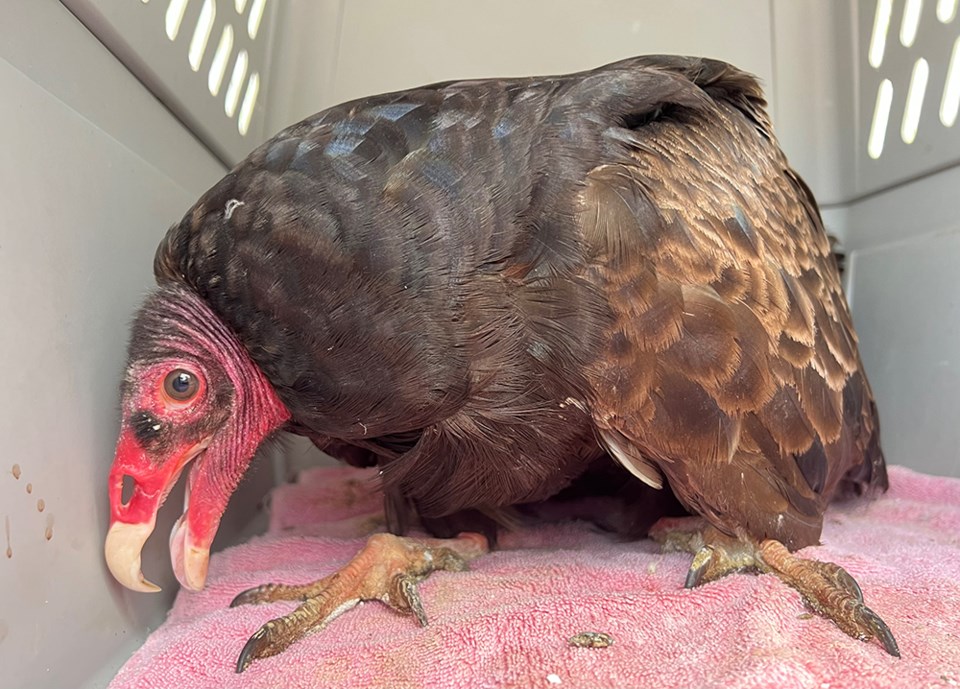QUICK LEARNER: With his startling, featherless red head, a young male turkey vulture was noticed sitting on the dusty ground in the woods near Second Beach. When approached, he didn’t move. Powell River Orphaned Wildlife Rescue (PROWLS) was called.
With two helpers, PROWLS president Merrilee Prior tried to surround the turkey vulture but he managed to sneak past them into the dense bush. Eventually they found him again, hiding under a rotten log in a deep gully with water on the bottom.
Wading in, Merrilee chased him out and they finally caught him firmly in a net. The reason he couldn’t fly was discovered: an injured shoulder.
Back at PROWLS and very hungry, he hissed loudly to demand meat and fish. When fed, he squeaked and whistled in pleasure.
With painkillers, the pain was somewhat diminished. Soon this turkey vulture was slamming his empty dish on the cage door demanding more food. Quick learner!
Boarding a Pacific Coastal Airlines flight free of charge and welcomed at Orphaned Wildlife Society in Delta, he will be well cared for and, we hope, ready to join others for the southward migration.
The turkey vulture’s stomach acid is extremely acidic, so they can digest just about anything. This also allows them to eat carcasses tainted with anthrax, tuberculosis and rabies without getting sick.
They provide an essential service for the health of our ecosystems. Without them, carcasses would accumulate and diseases would spread from rotting flesh.
When seen soaring effortlessly high in the sky, turkey vultures are a majestic sight.



